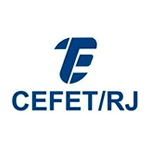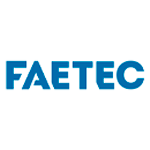Análise de Perfis Metacognitivos para Redução da Evasão em EAD: uma Abordagem Baseada em Ciência de Dados
DOI:
https://doi.org/10.18264/eadf.v15i1.2377Palavras-chave:
Neuroeducação, Metacognição, Educação a distância, Estilos Cognitivos., Ciência de dadosResumo
Este estudo investiga a integração da análise metacognitiva em neuroeducação e ciência de dados para aprimorar a experiência da educação a distância (EAD). Foram analisados dados de 1391 estudantes de pós-graduação da Faculdade Estratego, utilizando um questionário abrangente e o Inventário de Consciência Metacognitiva (MAI) para avaliar dimensões acadêmicas, pessoais, socioeconômicas e metacognitivas. O pré-processamento e análise dos dados foram realizados utilizando Python no Jupyter Notebook, empregando o agrupamento K-Means e a classificação por Máquina de Vetores de Suporte (SVM) para identificar e categorizar perfis metacognitivos. Nossos resultados revelam quatro perfis metacognitivos distintos entre os estudantes, que se correlacionam significativamente com seu desempenho acadêmico e engajamento na EAD. O processo de agrupamento, validado pelos métodos Elbow e Análise de Silhueta, confirmou a formação ideal desses perfis, aprimorando nossa compreensão das diversas estratégias de aprendizagem dentro da população estudantil. A Análise de Componentes Principais (PCA) foi utilizada para refinar ainda mais os dados, focando nos atributos metacognitivos mais significativos que influenciam os resultados de aprendizagem. Esta análise destacou estratégias metacognitivas específicas fundamentais para promover ambientes de aprendizagem eficazes e reduzir as taxas de abandono. O estudo ressalta o potencial de combinar princípios de neuroeducação, insights metacognitivos e técnicas de ciência de dados para personalizar estratégias educacionais que acomodem perfis de aprendizes diversos. Alinhando o conteúdo educacional e as metodologias às capacidades cognitivas e metacognitivas dos estudantes, os educadores podem melhorar significativamente o engajamento e a eficácia nos ambientes de EAD, melhorando, em última análise, o sucesso acadêmico e as taxas de retenção.
Palavras-chave: Neuroeducação. Metacognição. Ciência de dados. Educação a distância. Perfis cognitivos.
Downloads
Referências
ABBAD, G. et al. Evasão em curso via internet: explorando variáveis explicativas. RAE eletrônica, v. 5, n. 2, 2006.
AHMED, M. et al. The k-means Algorithm: A Comprehensive Survey and Performance Evaluation. Electronics, v. 9, n. 8, p. 1295, 2020.
ALLIPRANDINI, P. S, A. et al. Estratégias de aprendizagem utilizadas por estudantes na educação a distância: implicações educacionais. Psicologia da Educação, São Paulo , n. 38, p. 05-16, 2014.
ASSOCIAÇÃO BRASILEIRA DE EDUCAÇÃO A DISTÂNCIA. Censo EAD.BR: relatório analítico da aprendizagem a distância no Brasil 2020. Curitiba, PR: InterSaberes, 2022.
BAHAR, A. S.; SHAPIRO, M. L. Remembering to Learn: Independent Place and Journey Coding Mechanisms Contribute to Memory Transfer. Journal of Neuroscience, v. 32, n. 6, p. 2191–2203, 2012.
COSENZA, R. M; GUERRA, L. Neurociência e educação: como o cérebro aprende. Porto Alegre: Artmed, 2011.
COSTA, R D. Classificação dos estilos de aprendizagem baseado em sistemas inteligentes: um estudo de caso na educação mediada por tecnologia. 81f. Tese (Doutorado em Engenharia Elétrica e de Computação) - Centro de Tecnologia, Universidade Federal do Rio Grande do Norte, Natal, 2020.
FERNANDEZ, A. et al. SMOTE for Learning from Imbalanced Data: Progress and Challenges, Marking the 15-year Anniversary. Journal of Artificial Intelligence Research, v. 61, p. 863–905, 2018.
FILATRO, A.; CAIRO, S. Produção de Conteúdos Educacionais. São Paulo: Ed. Saraiva Uni, 2015.
FILATRO, A. Data Science na Educação: Presencial, a Distância e Corporativa. São Paulo, SP: Saraiva Educação, 2021.
FILATRO, A. Design instrucional contextualizado: educação e tecnologia. São Paulo: Ed. SENAC, 2004.
FILATRO, A. Design Instrucional na prática. 1ª Ed. Pearson, 2008.
FLAVELL, J. H. Metacognition and cognitive monitoring. A new area of cognitive-developmental inquiry. American Psychologist, v. 34, n. 10, p. 906-911, 1979.
FRAZIER, P. I. A Tutorial on Bayesian Optimization. arXiv (Cornell University), 2018.
GHADDAR, B.; NAOUM-SAWAYA, J. High dimensional data classification and feature selection using support vector machines. European Journal of Operational Research, v. 265, n. 3, p. 993–1004, 2018.
GUTIERREZ-PACHAS, D. A. et al. Supporting Decision-Making Process on Higher Education Dropout by Analyzing Academic, Socioeconomic, and Equity Factors through Machine Learning and Survival Analysis Methods in the Latin American Context. Education Sciences, v. 13, n. 2, 154, 2023. Disponível em: https://www.mdpi.com/2227-7102/13/2/154 Acesso em: 23 mar. 2025.
JESUS, Â. M. et al. Aplicando ciência de dados educacionais para avaliar a influência da programação no progresso das notas do Ensino Médio. Revista Educação Pública, v. 21, n. 33, 2021.
KANDEL E. R. et al. M. Princípios de Neurociências. 5a Ed. Porto Alegre: Artmed, 2014.
KARAOGLAN YILMAZ, F. G.; YILMAZ, R. Learning analytics as a metacognitive tool to influence learner transactional distance and motivation in online learning environments. Innovations in Education and Teaching International, v. 58, n. 5, p. 575–585, 2020.
KOLB, D. A. Learning Style Inventory: Self Scoring Test and Interpretation Booklet. Boston, MA: McBer, 1985.
LIMA FILHO, R. N.; BRUNI, A. L. Metacognitive Awareness Inventory: tradução e validação a partir de uma análise fatorial confirmatória. Psicologia: Ciência e Profissão, 35(4), 1275-1293, 2015.
LINDERMAN, G. C.; STEINERBERGER, S. Clustering with t-SNE, provably. SIAM journal on mathematics of data science, v. 1, n. 2, p. 313–332, 2019.
MORY, E. H. Feedback Research Review. In: JONASSEM, D. (Comp.). Handbook of Research on Educational Communications and Technology. Mahwah: Lawrence Erlbaum. p. 745-783, 2004.
ORSUCCI, F. F; SALA, N. Neuroscience and Technology Transform the Educational Ecosystem. New York: Nova Medical and Health, 2022.
PELIKAN, E. R. et al. Distance learning in higher education during COVID-19: The role of basic psychological needs and intrinsic motivation for persistence and procrastination–a multi-country study. PLOS ONE, v. 16, n. 10, p. e0257346, 2021.
PINTO, L. F. G. Teorias De Aprendizagem Aplicadas ao E-learning: Uma Abordagem da Teoria Cognitiva De Aprendizagem Multimídia. Anais do Congresso Internacional de Educação e Tecnologias, 2020.
RABELO, D. S. S. et al. Utilização de técnicas de mineração de dados educacionais para predição de desempenho de alunos EaD em ambientes virtuais de aprendizagem. Anais do Simpósio Brasileiro de Informática na Educação (SBIE), Recife-PE, 2017.
RAJU, V. N. G. et al. Study the Influence of Normalization/Transformation process on the Accuracy of Supervised Classification. Disponível em: https://ieeexplore.ieee.org/document/9214160 Third International Conference on Smart Systems and Inventive Technology (ICSSIT), 729-735. IEEE, 2020.
RAMOS, A. S. F. Dados recentes da neurociência fundamentam o método "Brain-based learning". Rev. psicopedag., São Paulo , v. 31, n. 96, p. 263-274, 2014.
RIVAS, S. F. et al. Metacognitive strategies and development of critical thinking in higher education. Frontiers in Psychology, v. 13, n. 1, 2022.
ROMERO, C.; VENTURA, S. Data mining in education. Wiley Interdisciplinary Reviews: Data Mining and Knowledge Discovery, v. 3, n. 1, p. 12-27, 2013.
SANTOS, L. R. dos et al . O Ensino Remoto Emergencial na Perspectiva da Metacognição: Análise da Percepção de Alunos de um Curso Técnico em Enfermagem. EaD em Foco, [S. l.], v. 11, n. 2, 2021. Disponível em: https://eademfoco.cecierj.edu.br/index.php/Revista/article/view/1260 Acesso em: 17 mai. 2024.
SANTOS, L. R. DOS; PEIXOTO, M. A. P. Análise do inventário de consciência metacognitiva de alunos do curso técnico em enfermagem. Research, Society and Development, v. 10, n. 12, p. e62101220019, 2021.
SAPUTRA, D. M. et al. Effect of Distance Metrics in Determining K-Value in K-Means Clustering Using Elbow and Silhouette Method. Proceedings of the Sriwijaya International Conference on Information Technology and Its Applications (SICONIAN 2019), 2020.
SCHRAW, G.; DENNISON, R. S. Assessing metacognitive awareness. Contemporary Educational Psychology, 19, (4), 460–475, 1994.
SILVA JÚNIOR, S. L. et al. The interface of neuroscience, education and technology: enhancing learning in the twenty-first century. Revista Aracê, São José dos Pinhais, v. 6, n. 2, p. 1419–1430, 2024. Disponível em: https://periodicos.newsciencepubl.com/arace/article/view/732 Acesso em: 23 mar. 2025.
TOMMI RAIJ et al. Parallel input makes the brain run faster. NeuroImage, v. 40, n. 4, p. 1792–1797, 2008.
WOLD, S. et al. Principal component analysis. Chemometrics and Intelligent Laboratory Systems, v. 2, n. 1-3, p. 37–52, 1987.
ZAWACKI-RICHTER, O. et al. Systematic Review of Research on Artificial Intelligence Applications in Higher Education – Where are the Educators? International Journal of Educational Technology in Higher Education, v. 16, n. 39, p. 1–27, 2019. Disponível em: https://educationaltechnologyjournal.springeropen.com/articles/10.1186/s41239-019-0171-0 Acesso em: 23 mar. 2025.
ZHANG, X. et al. A Review of Data Mining in Personalized Education: Current Trends and Future Prospects. arXiv preprint arXiv:2402.17236, 2024. Disponível em: https://arxiv.org/abs/2402.17236 Acesso em: 23 mar. 2025.
Downloads
Publicado
Como Citar
Edição
Seção
Licença
Copyright (c) 2025 EaD em Foco

Este trabalho está licenciado sob uma licença Creative Commons Attribution 4.0 International License.
Todos os artigos publicados na Revista EaD em Foco recebem a licença Creative Commons - Atribuição 4.0 Internacional (CC BY 4.0). Todas as publicações subsequentes, completas ou parciais, deverão ser feitas com o reconhecimento, nas citações, da Revista EaD em Foco como a editora original do artigo.













